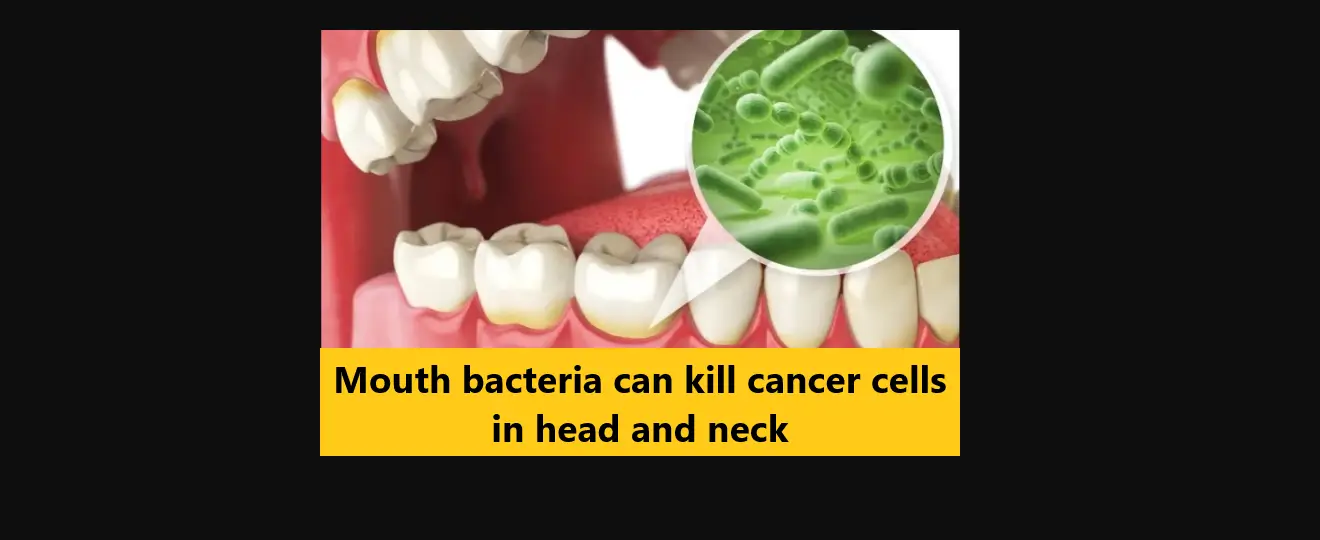Mouth bacteria can kill cancer cells in head and neck, a study finds.
Groundbreaking Study Reveals Oral Bacteria Can Destroy Head and Neck Cancer Cells
Introduction
A recent study conducted by researchers from Guy’s, St. Thomas’, and King’s College London has unveiled a groundbreaking discovery: certain oral bacteria have the potential to destroy head and neck cancer cells.
Read More: Health Insurance Program Offers Free Treatment in Punjab
Published in Cancer Communications, this research sheds new light on head and neck squamous cell carcinoma (HNSCC), the sixth most common cancer globally, which has seen little advancement in treatment.
Discovery of Fusobacterium’s Role
Researchers may have found a glimmer of hope in a bacterium called fusobacterium. While previously known to advance colon cancer, this bacterium appears to inhibit the spread of head and neck cancer. According to the study, fusobacterium can effectively “melt” head and neck cancer cells, suggesting a more complex relationship between bacteria and cancer than previously understood.
Key Findings
Improved Prognosis with Fusobacterium
Dr. Miguel Reis Ferreira, the senior author, emphasized that the findings should be viewed in light of fusobacterium’s documented role in exacerbating cancers, including those of the gut. Data from 155 head and neck cancer patients were analyzed by a global team of scientists led by Dr. Ferreira. Remarkably, patients with naturally occurring higher levels of fusobacterium showed a consistently improved prognosis. According to The Guardian, their chances of survival increased by 65 percent.
Laboratory Results
Dr. Ferreira noted, “In essence, we found that when you find these bacteria within head and neck cancers, they have much better outcomes. The other thing that we found is that in cell cultures this bacterium is capable of killing cancer.” When left in a petri dish containing cancer cells, fusobacterium killed 70 to 90 percent of the cancer cells within a few days, releasing toxic chemicals that annihilated the tumor. “You put it in the cancer at very low quantities and it just starts killing it very quickly,” Dr. Ferreira stated.
Implications for Cancer Treatment
This discovery was unexpected, as fusobacterium is known to promote cancer growth in the intestines. Researchers initially anticipated that it would aggravate cancer cells in the head and neck. Instead, they may have uncovered a groundbreaking treatment for this type of cancer. “At the end of a few days, it just destroys the cancer completely,” Dr. Ferreira remarked.
Future Research
While the project is still in its early stages, researchers are eager to explore how these findings might impact patient outcomes for cancers beyond head and neck. This study opens new avenues for experimenting with bacteria that scientists might not have previously considered effective. These bacteria, which stimulate the growth of certain types of cancer, may destroy other types when introduced.
Conclusion
Dr. Anjali Chander, a senior clinical research fellow at King’s College London and lead author at Guy’s and St. Thomas’, expressed excitement over the discovery. “Our findings are remarkable and very surprising. We had a eureka moment when we found that our international colleagues also found data that validated the discovery,” she said.
This groundbreaking study offers new hope for cancer treatment, highlighting the potential of fusobacterium in destroying head and neck cancer cells. As research progresses, the implications for patient outcomes and the treatment of various cancers could be profound.
For more detailed information on the study, visit the Cancer Communications journal and Guy’s and St. Thomas’ official website.
Note: The information above might not be accepted 100%. Please verify from your own sources. We will not be responsible/liable for any kind of loss due to our content.
For more news, please visit Munafa Marketing.




